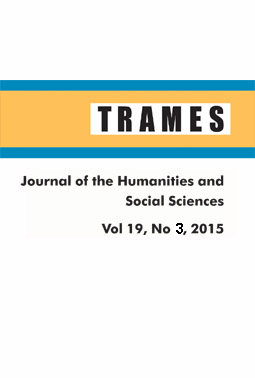CHANGES IN LANGUAGE POLICY IN ESTONIA:
SELF-DESCRIPTIONS OF RUSSIAN-SPEAKING STUDENTS
CHANGES IN LANGUAGE POLICY IN ESTONIA:
SELF-DESCRIPTIONS OF RUSSIAN-SPEAKING STUDENTS
Author(s): Sander Salvet, Maiel Soll, Anu MassoSubject(s): Politics / Political Sciences
Published by: Teaduste Akadeemia Kirjastus
Keywords: language policy; ethno-cultural self-description; language of instruction; educational change; Russian-speaking population of Estonia; qualitative online interview method
Summary/Abstract: This study concentrates on one of the most drastic changes in Estonian language policy since the country regained its independence – the change in the language of instruction in Russian-medium schools. The Estonian example is rather unique internationally since the minority group can choose different languages of instruction for schooling. We focus on students’ ethno-cultural self-descriptions as one indicator for studying the change in the language of instruction. We use the online interview method as an empirical basis; the sample consists of graduates from upper-secondary schools/classes with various languages of instruction (Estonian, Russian, language immersion) situated in various regions of Estonia (monolingual vs bilingual everyday setting; n = 14). The results of the analysis reveal the relationships between ethno-cultural self-descriptions and attitudes to the changes in the language of instruction. The ethno-cultural self-descriptions in turn are expressed in terms of general social affiliation (media habits, future plans and affiliation with Estonia). We conclude that the transition to Estonian-language instruction has failed in terms of communication, since a focus on instrumental rather than ethno-cultural issues can lead to the weak social affiliation of individual students.
Journal: TRAMES
- Issue Year: XIX/2015
- Issue No: 3
- Page Range: 221–247
- Page Count: 29

